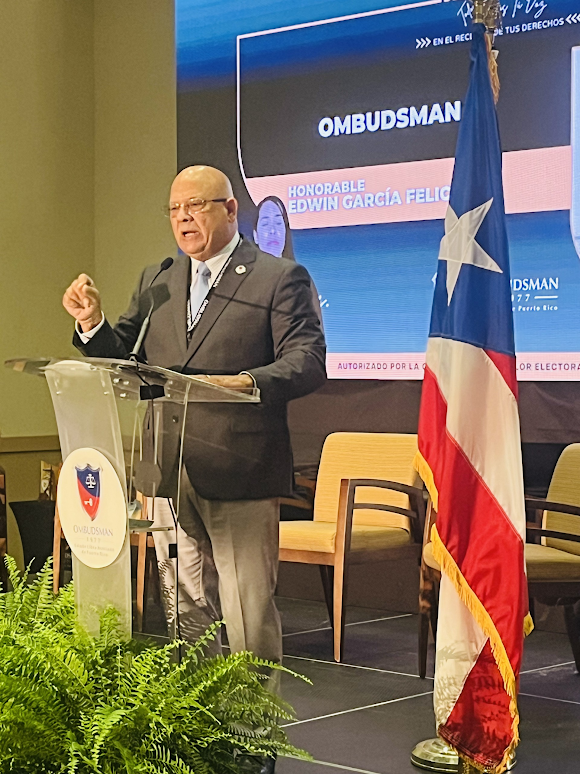
---
The forthcoming government leadership should focus on providing outstanding service to the populace, stated Edwin García Feliciano, the Ombudsman of Puerto Rico.
The foremost advocate for citizens on the island stressed that the primary task of the new administration is to meet the expectations of the people, particularly given the potential negligence of agency leaders in adhering to public service commitments.
García Feliciano asserted that regardless of the positive intentions, programs, and construction or investment initiatives, the community has become adept at evaluating based on unmet promises and unfulfilled commitments.
“It is important that all necessary projects are implemented,” he remarked. “However, we must not overlook the additional elements that citizens eagerly anticipate from their government.”
He indicated that ultimately, the government leader is solely accountable to the voters, who later hold them responsible for what was left undone or what should have been accomplished.
To emphasize his argument, García Feliciano took the Department of Transportation and Public Works (DTOP) as a case in point. He mentioned that an agency lacking the adaptability to manage everyday issues, such as fixing potholes, repairing traffic signals, maintaining cleanliness on roads, and addressing various routine challenges, appears ineffective, even if it succeeds in paving 500 roads across the island. He noted that only a limited number of tasks can be assigned to the General Services Administration.
A parallel circumstance, García Feliciano elaborated, is found with the Department of Health. He stressed that one cannot discuss health if preventive care is not extended to the public, who often become patients suffering from multiple ailments.
“If health promotion campaigns are not executed with a preventive focus, if the action plan is not coordinated at the municipal level, if the [Health Department] doesn’t actively engage in providing exceptional patient care, or if it does not partner with citizens in their battles against insurance providers in collaboration with ASES [Health Insurance Administration], it is destined for failure,” he noted.
The citizen ombudsman further stated that the Education Department is another agency that must fulfill its daily responsibilities. He highlighted cases such as avoiding class cancellations for professional gatherings, enhancing the hiring process for teachers, or ceasing school maintenance in July.
García Feliciano specifically mentioned that there is an expectation for children with disabilities, like those on the autism spectrum, to receive proper support, and for teacher absences to be minimized.
“In essence, the daily operations do not justify the Department of Education being an institution plagued by significant administrative shortcomings lacking in results and coordination,” the former mayor of Camuy stated.
He added that it is crucial to reduce bureaucratic excess and provide agencies with the flexibility they need to be responsive to citizens’ needs.
“Failing to grasp this would lead us back to the same problems,” he claimed. “It is vital to reassess all the charges levied against citizens and businesses, ensuring that agency leaders address the requirements of the public.”
In this context, García Feliciano stressed that the government must learn to return phone calls, reply to texts and emails, and maintain personal service to citizens, especially the growing population of senior citizens.
